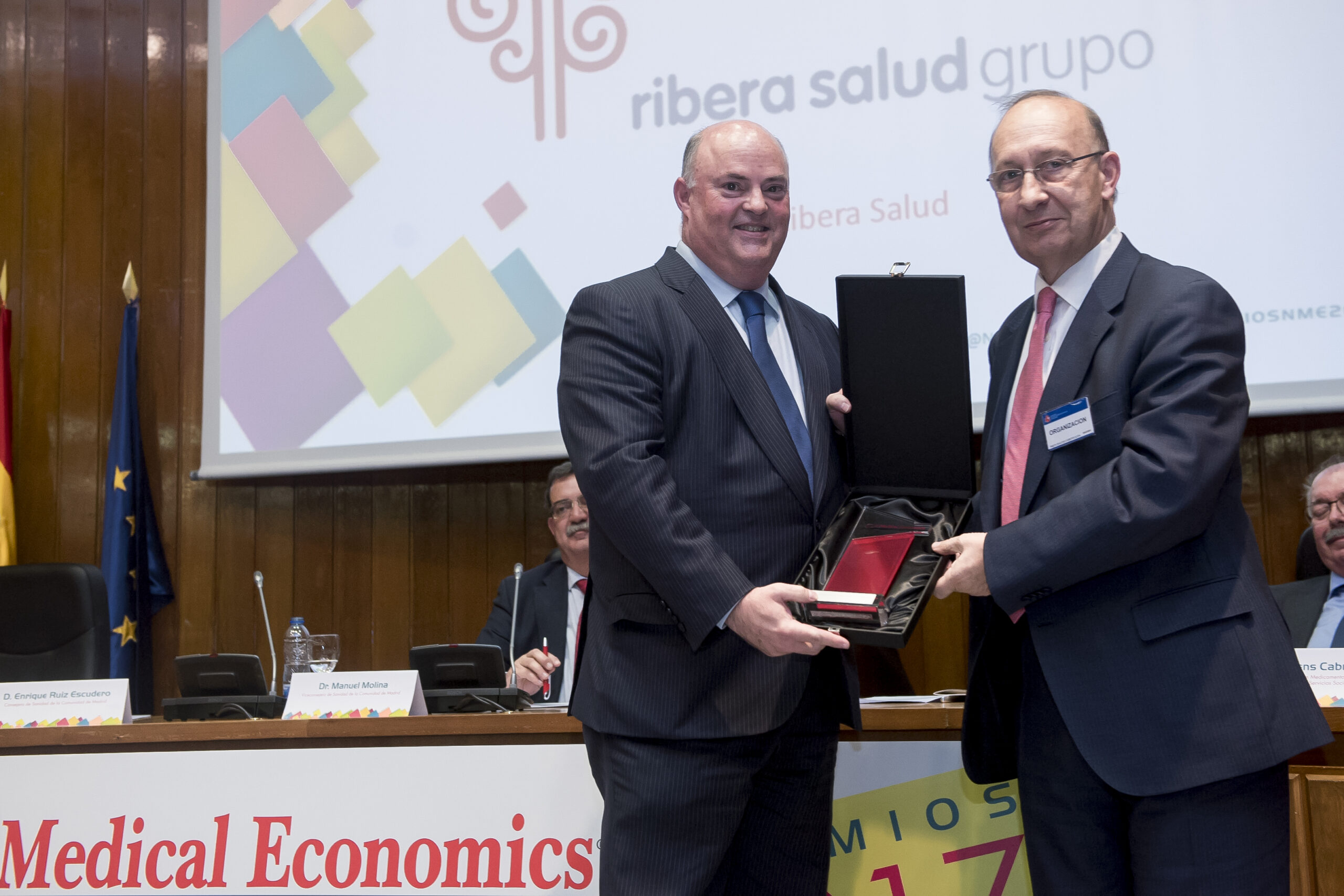The healthcare publication New Medical Economics has awarded Ribera Salud the prize for ‘Best Society Transparency Policy’, as voted by the Editorial Board and its readers. We collected the award yesterday in Madrid, and I must say that I am particularly excited to receive this acknowledgement given the present situation.
We are in a period of great controversy regarding the public-private collaboration healthcare model, with more debates, disagreements and even attempts to smear the managers and companies who, for many years, have loyally collaborated with the Public Administrations and contributed to positioning the Spanish healthcare system among the best in the world. And when we talk about the Spanish healthcare system, we are talking about both public healthcare and private healthcare. Why are we so determined to create confrontation rather than combine efforts, knowledge and talent?
The private sector is accused of “opacity”, “profit”, “business”, “labour exploitation”, “increased expense”, “bailouts” and “inappropriate practices”, among other things. These descriptions have unfortunately been used by supporters of maintaining the status quo and their own privileges (commonly known as “white tides”) to refer to the corporate identity of all the management companies which work closely with the Public Administrations.
The main critics focus on the lack of rigorous data and reports issued by authorised voices to demonstrate the greater efficiency and quality of the public-private collaboration model compared to traditional direct management. In this context, transparency has become a key element for the future of all organisations.
The healthcare sector, both public and private, has suffered and continues to suffer today due to not having an observatory (an initiative which I have been demanding for years and which I am demanding once again today in this blog) to evaluate and transmit to society the value generated by this management model, similar to what happens in other countries of our beloved European Union. However, it must be said that the private sector has moved up a gear in this respect, partly obliged by the need to promote its management. We must remember that the best defence for the public-private collaboration model is benchmarking and the presentation of results to the public.
We are in a period of increased transparency in the private model and the public-private collaboration model in the healthcare industry. An example of this is the Court of Auditors reports, which are regular reports by the Institute for Healthcare Development and Integration (IDIS) Foundation, the public-private collaboration guide by the Valencian Business Confederation (CEV), and the comparative study between the healthcare concessions in the Valencian Community and the direct-management hospitals in Catalonia, prepared by the Gaspar Casal Foundation and Pompeu Fabra University. And just a fortnight ago, the “Lazarillo de Tormes” commitment was presented, regarding the priority of the public-private collaboration in healthcare, prepared by the Spanish Society of Healthcare Directives (SEDISA), and the report entitled “Private Hospitals in Europe: Supporting Sustainable Health Systems”, prepared by Hans Martens in collaboration with the European Union of Private Hospitals (UEHP).
All of these examples demonstrate that public-private collaboration must be based on an independent interaction which is agreed upon and is beneficial for all parties, with mechanisms, pacts, processes and clear rules to prevent any possible conflicts and to implement a good monitoring structure to allow for continuous improvements and advancements.
At Ribera Salud, we have also made an effort in terms of internal and external transparency. Examples of this include the implementation of a Compliance Policy within the organisation, collaboration in numerous national and international comparative studies on our business model, the creation of a Transparency Portal with direct access to data related to economics and care, and the preparation of reports and publications on the concessional model, among many other initiatives.
We took the initiative to work towards transferring greater knowledge on how our model works to society, as we are aware that most criticism derives from a lack of knowledge and confusion between “private management” and “privatisation”. This prize is without a doubt another push towards making transparency a value that sets our organisation apart from the rest.

